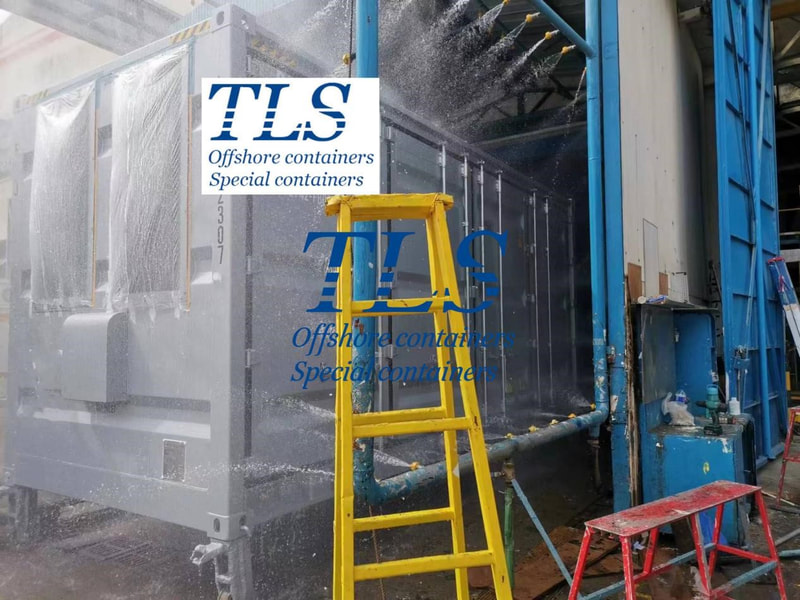|
Introduction: In the rapidly evolving landscape of renewable energy, energy storage has emerged as a critical component to balance the intermittent nature of renewable sources. As the demand for efficient and sustainable energy solutions grows, the need for reliable energy storage containers becomes increasingly paramount. One crucial aspect often overlooked is water tightness testing, a fundamental measure to ensure the safety and longevity of these containers. The Significance of Energy Storage Containers: Battery Energy Storage System (BESS) containers offer a containerized solution designed to store and manage energy derived from renewable sources like solar and wind power. These containers present a cost-effective and modular approach to energy storage, facilitating easy transportation and deployment in diverse locations. A key advantage of BESS containers lies in their capacity to deliver energy storage on a large scale. By stacking and combining these containers, overall storage capacity can be increased, making them well-suited for expansive renewable energy projects such as solar and wind farms. Furthermore, BESS containers enable the storage of energy during off-peak hours, releasing it during periods of peak demand, thereby contributing to grid stability and reducing dependence on fossil fuels. The flexibility of BESS containers is noteworthy. Their ease of transportation and deployment makes them suitable for remote or off-grid locations where traditional energy storage solutions may not be practical. Additionally, BESS containers seamlessly integrate with other renewable energy technologies like solar panels and wind turbines, providing a comprehensive and efficient energy system. To enhance safety, BESS containers are equipped with built-in features to safeguard stored energy from various hazards, including fire and extreme weather conditions. These safety measures encompass fire suppression systems and weatherproofing, ensuring the secure and protected storage of energy. In summary, Battery Energy Storage System (BESS) containers emerge as a practical and scalable solution for storing and managing energy generated from renewable sources. With their capability for large-scale energy storage, adaptability, and integrated safety features, BESS containers stand out as an ideal choice for organizations aiming to implement renewable energy projects and diminish reliance on fossil fuels. Water Tightness Testing: A Critical Assurance: Watertightness testing involves assessing the container's ability to resist the ingress of water. This process is vital for several reasons:
Conclusion: In the pursuit of sustainable energy solutions, the reliability and safety of energy storage containers cannot be overstated. Watertightness testing serves as a crucial quality control measure, addressing potential vulnerabilities that could compromise the functionality and safety of these containers. As the energy storage industry continues to expand, a proactive approach to watertightness testing will contribute to the longevity, efficiency, and safety of energy storage systems, ultimately advancing the transition to a more sustainable energy future. TLS Offshore Containers / TLS Special Containers is a global supplier of standard and customised containerised solutions. Wherever you are in the world TLS can help you, please contact us. Regarding the Battery Energy Storage System (BESS) container, please download Energy Storage System (ESS) Containers brochure for reference. Key words: #Battery Energy Storage System (BESS) #Containerized solution #Renewable energy #Solar power #Wind power #Off-peak hours #Flexibility #Integration #Fire suppression systems #Weatherproofing Written by OliverComments are closed.
|
Archives
July 2024
Categories
All
|
- Home
-
Containerised solutions
- Intelligent pressurised container | MUD logging cabin
- Battery energy storage system (BESS) container
- Flexible grid tied battery storage system
- Laboratory container | workshop container | Equipment containers
- Temporary refuge shelter | Toxic gas refuge | Safe haven
- Offshore accommodation cabin | office container
- Reefer container | Refrigerated container
- Intelligent waste water treatment container
- Fresh water generator container
- Cargo Containers
- Product photos & videos
- News & Blogs
- Contact us
|
Featured products
Intelligent pressurised container Temporary refuge (TR) shelter, toxic gas refuge (TGR) Battery energy storage system (BESS) container Containerised waste water treatment plant Fresh water generator container Reefer container Laboratory container, Workshop container Accommodation container Offshore closed container |
All Rights Reserved 2020 © TLS Offshore Containers / TLS Energy
|

